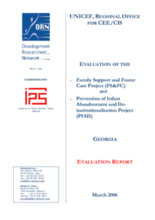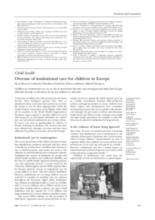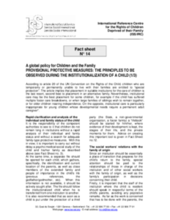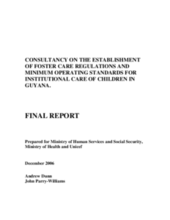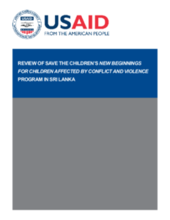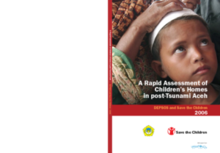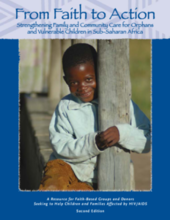Displaying 581 - 590 of 668
Practical and professional paperwork for residential care including registration and assessment forms, application for renewal of licences, referral forms, and emergency admission forms. Can be modified for different country contexts.
A set of standards for measurable quality in service provision for children living in homes. Outlines the rights of a child, planning and legalizing children’s care, children’s home administration, management and staffing, and safeguarding child welfare while in the home, which includes nutrition, health, education and religion.
Documents assessment of child welfare and protection of children in orphanages in Liberia.
Assessment of two recently reformed child protection projects in Georgia (Prevention of Infant Abandonment and De-institutionalisation (PIAD) and Family Support and Foster Care (FS&FC)). Includes detailed evaluation methodology and lessons learned.
This article discusses the use of institutional care for children in Europe and shows that it remains common place despite the evidence of harm for children, including attachment disorder and developmental delay.
A brief 2-page overview of what steps should be taken if and when a social worker or other community worker admits a child to a residential institution.
Detailed guidelines for the establishment of the Child Protection Service (CPS), designed to address the lack of regulations concerning standards in children’s institutions and the lack of departmental policy and procedures for assessing and assisting abused and at-risk children. Includes comprehensive set of CPS forms in 14 annexes.
An evaluation of a programme in Sri Lanka that aimed to resettle and reintegrate children affected by armed conflict, prevent and respond to child abuse, and develop community based alternatives to institutional care.
Examines institutional and family care in post-Tsunami Indonesia. Includes situational analysis, key issues, and recommendations.
A tool to encourage donors to fund community programs that keep children in family care, rather than simply funding orphanages. Describes the many strategies being used to invest in community-based care, and contains specific program examples.



